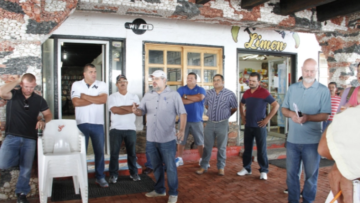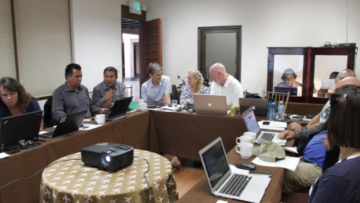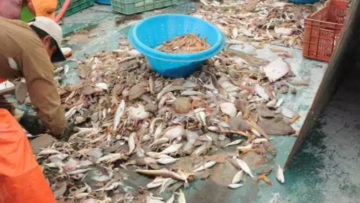COMMITTEE SESSIONS
Merida Workshop
First workshop on fishing technologies in the Upper Gulf (April 2016)
In April 2016, INAPESCA and WWF organized a workshop on fishing technologies as part of the Symposium on Technology Development and Sustainable Fisheries, which took place in Merida, Mexico. The group in Merida defined 12 main principles to guide the development of a research protocol for sustainable fishing technologies in the Upper Gulf.
- Permanent gillnet ban
- Experimental protocols are to be free from obstruction
- Experience needs to be taken into account
- Selective net RS-INP-MX can be applied
- Trials should be conducted with manageable groups of fishermen
- Participation of fishermen should be carefully monitored
- Assurance of resources
- Assurance of permits
- Continuation of enhanced enforcement
- Assurance of incentives for participation
- Requirement of observation
- Follow up from expert group
Consult the full Merida Recommendations
First Meeting
In July 2016, the committee met in Mexico City to follow up with the Merida Recommendations. There were some key items discussed with regards to the Upper Guld sustainable fishing technologies research protocol, including:
- Small-scale testing and proof of concepts of alternative gear such as stow nets and suripera nets, but must not distract resources from the main protocol.
- Complementing observer data with electronic systems to have a balance between onboard observers and electronic monitoring.
- Creating a ser of criteria for selecting fishermen.
A comprehensive summary of the first meeting can be accessed through the minutes of the first meeting.
Second Meeting
In September 2016, the committee met in Mexico City to adjust the working agenda from the first meeting. Two new members were added to the committee and it was urged that the criteria for selecting fishermen to be established. Scale models of proposed shrimp trawls are to be tested in flume tanks in Newfoundland, Canada. INAPESCA announced the following with respect to legal documents that were created relevant to vaquita protection and fisheries in the Upper Gulf:
- Prohibition of night fisheries
- Designation of three authorized landing places for increased control
- Permanent ban on all driftnets
- Definition of the nets used in curvina fisheries for San Felipe and Gulf of Santa Clara
Consult the minutes of the second meeting.
Third Meeting
In November 2016, the third meeting gathered the committee and some of the new members for a three-day trip to Mexicali and San Felipe, where we were able to get a first hand glimpse of the fishing technologies in practice, as well as a facilitated discussion with the local fishermen. The committee went over specific alternative fishing gear individually, concluding the following:
- Bait tests must begin as soon as possible before fishing season starts
- Trawl systems for shrimp fisheries can be improved
- Suripera net is now another option to explore
- The committee must adapt to the government’s changing regulations on curvina fisheries
- A working plan for testing finfish gear is to be produced by the end of the year
Consult the summary and minutes from the third meeting: Background Information, Preparing Recommendations & Summary of the 3rd Meeting.
Curvina fishery presentation by Environmental Defense Fund
INAPESCA’s presentation on fishing gear: INAPESCA
Jeff’s summary of the field trip to San Felipe: San Felipe panga trawl summary
Fishermen slideshows (both in Spanish at the moment): Reporte general pruebas de pesca & Serie de imágenes
Summaries from 2nd day discussion groups: Mike & Paul, Tim, Jeff, Gary, Chris & Simon, Lotte & Sara



